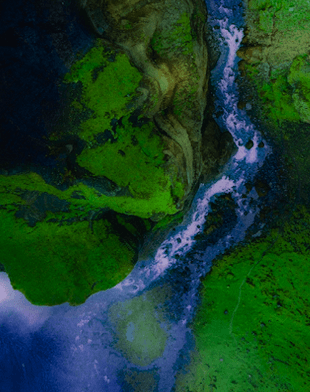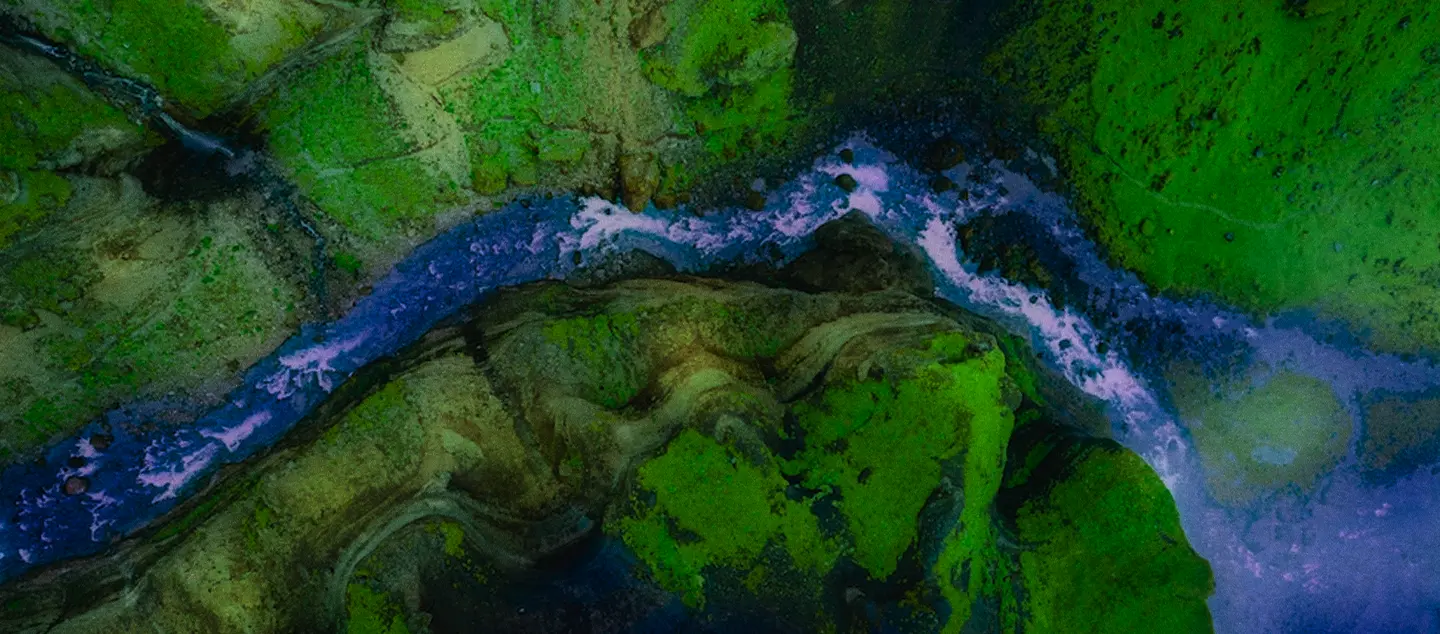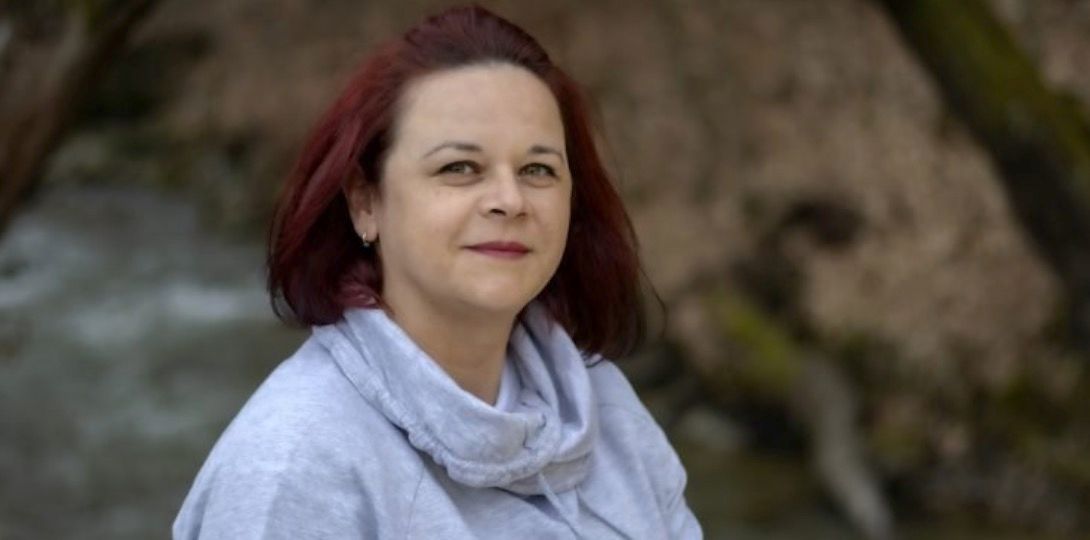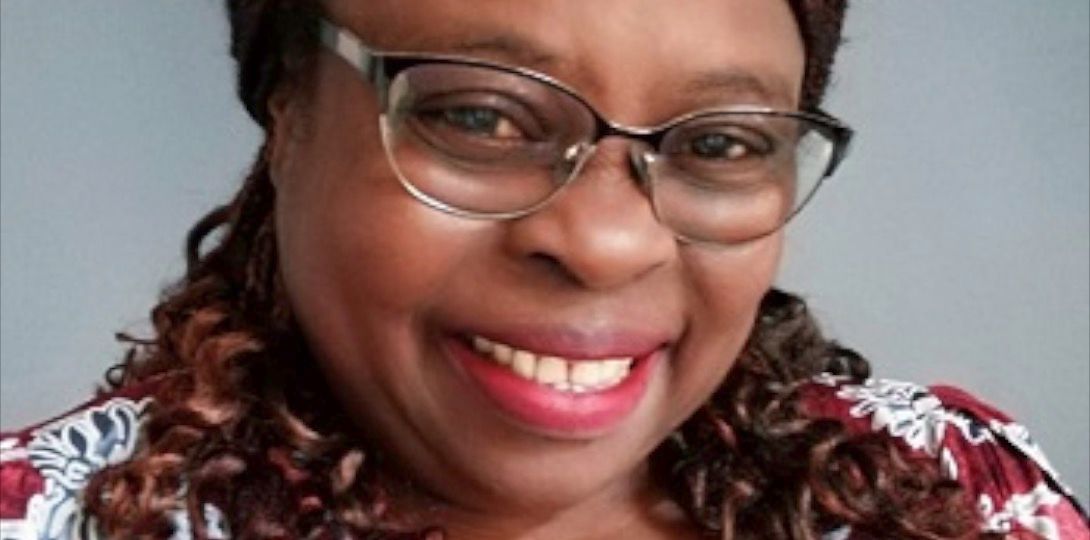Guardians of the RiverA transformative course on water guardianship
In this unique expert-led course, learn about River Guardianship through different experiential modes of learning, including embodied practices, enlivening talks, and practical workshops alongside leading activists, environmentalists, Indigenous leaders and artists.
taught by Anwulika Okonjo
We focus on the living river and the three pillars of river stewardship: memory, culture and spirituality. Learn about Brazil's longest river and its importance to the Kanayko and Kariri-Xoco peoples of Alagoas, and what is being done to protect its legal rights.

Chapter 1
Toré Ritual With Tawanã Cruz, Hosted by Anwulika Okonjo

Chapter 2
Biography of the São Francisco/Opara & the Caves of Peruacu With Edgar Kanaykõ

Chapter 3
Biography of the São Francisco/Opara & the Caves of Peruacu With Tawanã Cruz

Chapter 4
Rights of the São Francisco River With Vanessa Hasson

Chapter 5
Q&A With Tawanã Cruz, Edgar Kanaykõ and Vanessa Hasson, Hosted by Anwulika Okonjo
Connect with the kinaesthetic and somatic properties of water, and learn about the importance of paying attention to rivers through the medium of sound and music. How vital is it for River Guardians to learn to practice deep listening and environmental attention?

Chapter 1
Practice: The Movement of Rivers With Eline Kieft

Chapter 2
Meeting of the Waters: The Ecology of Water Sounds & Music With Leah Barclay and Sandy Sur, Hosted by Tracey Benson

Chapter 3
Q&A With Leah Barclay and Sandy Sur, Hosted by Tracey Benson
Learn from river warrior, Gary Wockner about his battle to stop hydroelectric dams and the plight of one of the most iconic rivers in the US - the Colorado. In the module, we also hear about the benefits of river swimming. How can we rethink water through the practice of open-water swimming?

Chapter 1
The Campaign to Save the Colorado River With Gary Wockner

Chapter 2
Q&A With Gary Wockner

Chapter 3
Practice: Open Water Swimming With Charlie Dannreuther, Hosted by Anwulika Okonjo
This module explores the landmark ruling that pronounced the Atrato the first river in Colombia to be a legal person under the rights of nature framework. We will discuss the power of Black and Afro-descendent traditions in local River Guardianships. Why do racism and negative stereotyping continue to defi...

Chapter 1
Guardians of the River Atrato With Richard Moreno, Hosted by Nicolas Salazar Sutil

Chapter 2
Q&A With Richard Moreno
Why are stories so vital to communicating the work of local River Guardians and activists? We discuss different local storytelling traditions around the world, media representation, filmmaking and the importance of campaigning for rivers. We also explore heart politics and how individuals and communities a...

Chapter 1
Maguzawa Ritual and Dance in the Jakara River With Kamilu Hassan Hamza

Chapter 2
Gendered Perspectives With Mercy Ette

Chapter 3
Aquatic Theatre in the Niger Delta With Stephen Okpadah

Chapter 4
Q&A With Kamilu Hassan Hamza, Mercy Ette and Stephen Okpada

Chapter 5
The Fight for Wild Rivers in Alaska With Josh “Bones” Murphy

Chapter 6
The Fight for Wild Rivers in California With Mark Dubois

Chapter 7
Q&A With Josh “Bones” Murphy and Mark Dubois, Hosted by Anwulika Okonjo
How can a World Water Law be adopted, and what can River Guardians do to help make this law a reality? How can international actors work with Indigenous guardian organisations in Africa?

Chapter 1
World Water Law With Shelley Ostroff

Chapter 2
Q&A With Shelley Ostroff, Hosted by Anwulika Okonjo

Chapter 3
Working With Women Guardian Groups in Kenya With Ikal Angelei

Chapter 4
Water, the Ogiek and the Mau Forest With Daniel Kobei

Chapter 5
Q&A With Ikal Angelei and Daniel Kobei, Hosted by Anwulika Okonjo
Learn about the importance of campaigning for rivers to be healthy sources of drinkable water and the fight for Europe's last wild river, the Kruščica. How can we ensure legal protection of rivers is implemented in practice? How can urban rivers be restored and what kind of action can urban river guardians...

Chapter 1
Drinking Rivers With Li An Phoa, Hosted by Anwulika Okonjo

Chapter 2
Q&A With Li An Phoa, Hosted by Anwulika Okonjo

Chapter 3
Ilkley Clean River Campaign With Kathleen Roberts, Mark Wilkins and Robert Battarbee

Chapter 4
Q&A With Kathleen Roberts, Mark Wilkins and Robert Battarbee, Hosted by Nicolas Salazar Sutil

Chapter 5
Restoring the Beirut River With Adib Dada

Chapter 6
Q&A With Adib Dada, Hosted by Anwulika Okonjo

Chapter 7
A Fight That Never Ends With Maida Bilal

Chapter 8
Q&A With Maida Bilal, Hosted by Anwulika Okonjo
We honour various lifeforms that protect, guard and guide river spirits, both human and nonhuman. We explore land, dream, and artistic expression as vital aspects of River Guardianship.

Chapter 1
Meditation Led by Nicolas Salazar Sutil

Chapter 2
The Nyikina Warrwa and Muruwari River Custodians in Australia With Anne Poelina

Chapter 3
Q&A With Anne Poelina, Hosted by Anwulika Okonjo
Live ConversationsLive Conversations
temporary placeholder
Introduction
Guardians of the River will give you tools and insights into water stewardship in relation to many iconic rivers worldwide including the Ganges, Beirut, Niger, Amazon, Fitzroy and Atrato. We will explore how every one of us can take responsibility for the world’s freshwaters, which are highly threatened by extractivism, climate change, pollution, and drought. We will explore what it means to cultivate kinship with rivers, and open up possibilities for engagement on both the personal and policy level.
The course brings together some of the world’s most influential water activists, including five Goldman Prize Winners and many Indigenous water guardians, from over 25 nations. You will learn vital aspects of river guardianship such as rights of rivers, rivercide, and riparian community-building.
Why this course?
Water is a living entity with whom we all have a deep relationship. Without water, there would be no life.
Repairing the water-human relationship is at the core of this collective online learning journey. How can we reconnect with water and understand our relationship with water bodies based on values of kinship?
Can we begin to shift away from perceiving water as a mere resource in service to the human project of capitalism? Can we begin to understand our relation to rivers as sources of life? As crucial as the air we breathe? Our aim is to understand the spiritual, ecological, cultural and legal aspects of river guardianship by listening and learning from skilled practitioners and experts from around the world who have lived experience and deep understanding of traditional water knowledge and global confluences of water activism.
Our approach to river guardianship
We emphasise the function of water as life, hence the need to restore relations between humans and rivers through biocentric values.
Our approach is based on a 3-way flow:
- We must take care of our own bodies (i.e. learn how to use water for our own physical and mental wellbeing);
- We must take care of physical and affective relations between humans through the interpersonal power of water (water kinship and community);
- We must extend that sense of familiarity and responsibility to the protection of water bodies in general (river guardianship).
Starting from a somatic perspective, we will explore how to take care of our own bodily self in the way we drink, cleanse, bathe, swim, move and flow; we will learn about water kinship and riparian community-building, and we will navigate how to extend that sense of care between humans to a sense of love and care for freshwaters (i.e. via river activism, advocacy, counter-current journalism, legal defence of river and water art).
In order to change, we need to become aware of how we are interacting with the world around us. Somatics and physical self-awareness is essential to breaking free from oppressive systems and stories that are either internal or external to ourselves. We think it’s important to start from this perspective as it allows us to ask questions such as, What if we were able to get to the root of cultural crises? What if we were able to transform cultures by transforming the ways in which we inhabited our bodies? What if such practises were accessible to all?
The course will focus on three key aspects of river guardianship:
- Rights of Rivers: personhood of rivers and legal entity for freshwaters, catchments and basins.
- Rivercide: remedying and seeking justice following the ecological death of rivers due to industrial activity, agribusiness, hydropower and chemical and plastic pollution (we will cover major challenges such as drought, floods, dams and canalisation).
- Riparian community building and activism: building riverside communities for regeneration, protection and custodianship of freshwaters.
The course is designed to change the way we understand our relationship to rivers in an age of ecological crisis, whether you see yourself working or interested in environmentalism, nature reconnection, community building, activism, eco-art, research, environmental law, advocacy, or are simply looking for inspiration.
Structure of the course
This 12-week course is structured as an exploration of interactive river biographies interspersed with a series of regional projects. In these sessions, stories of the environmental, social and political struggle and strategy to protect and restore river systems are woven together through talks and workshops followed by group reflection and debate. These sessions are interwoven with practical workshops to help better understand the somatic, physical and personal sources of human-water connection.
The core course material is accompanied and supported by 5 key actions:
- Join the Ganga River Parliament;
- Design a mural along the Beirut River;
- Join a pilgrimage along the Cuckmere in England, from Alfriston to Cuckmere Haven, where the river meets the ocean;
- Help draft a manifesto on Global Water Guardianship;
- Join your local river Trust or community group.
- 9 Modules
- 37 Sessions
- 27 Speakers
- Curated readings, resources and embodied practices
- Community discussion area
- Appreciate the rich diversity of living rivers: ground rivers, underground rivers, flying rivers, meanders, deltas, etc.
- Understand rivers as part of living cycles with their own temporalities and flows.
- Appreciate the deep interdependence between human society and freshwater.
- Embody water knowledge through spiritual, somatic and experiential practice.
- Recognise the significance of cultural practises in river stewardship.
- Read the water for an understanding of changing environmental conditions and threats to river biomes.
- Recognise the main threats to river life (agribusiness, hydropower, mining, plastic pollution and sewage).
- Evaluate ideas holistically for effective approaches to river guardianship, and interaction between guardianship approaches and existing models of water management.
- Develop community-building for collective river guardianship action.
- Understand the legal, political and economic aspects of river stewardship.
- Gain awareness of key river guardianship campaigns and advocacy groups currently underway worldwide.





























